Bridging the Gender Gap Through Entrepreneurship Training
One of the biggest challenges when starting a business is turning a new idea into an actionable business plan. Around the world, women face even more obstacles in entrepreneurship: societal norms like housework and child-rearing take up a disproportionate percentage of their time, contributing to more than 60% of African women working in the informal sector.
But women’s business ideas are valuable, and Fellowship Alumni are igniting an entrepreneurial spark in their communities. This International Women’s Day, the Fellowship celebrates how Alumni are helping “Inspire Inclusion.” Through Leveraging Innovations in New Communities (LINC) Grants, Alumni’s business workshops are doing just that by helping dozens of women develop their businesses in Uganda and Tanzania to support themselves, their communities, and their countries.
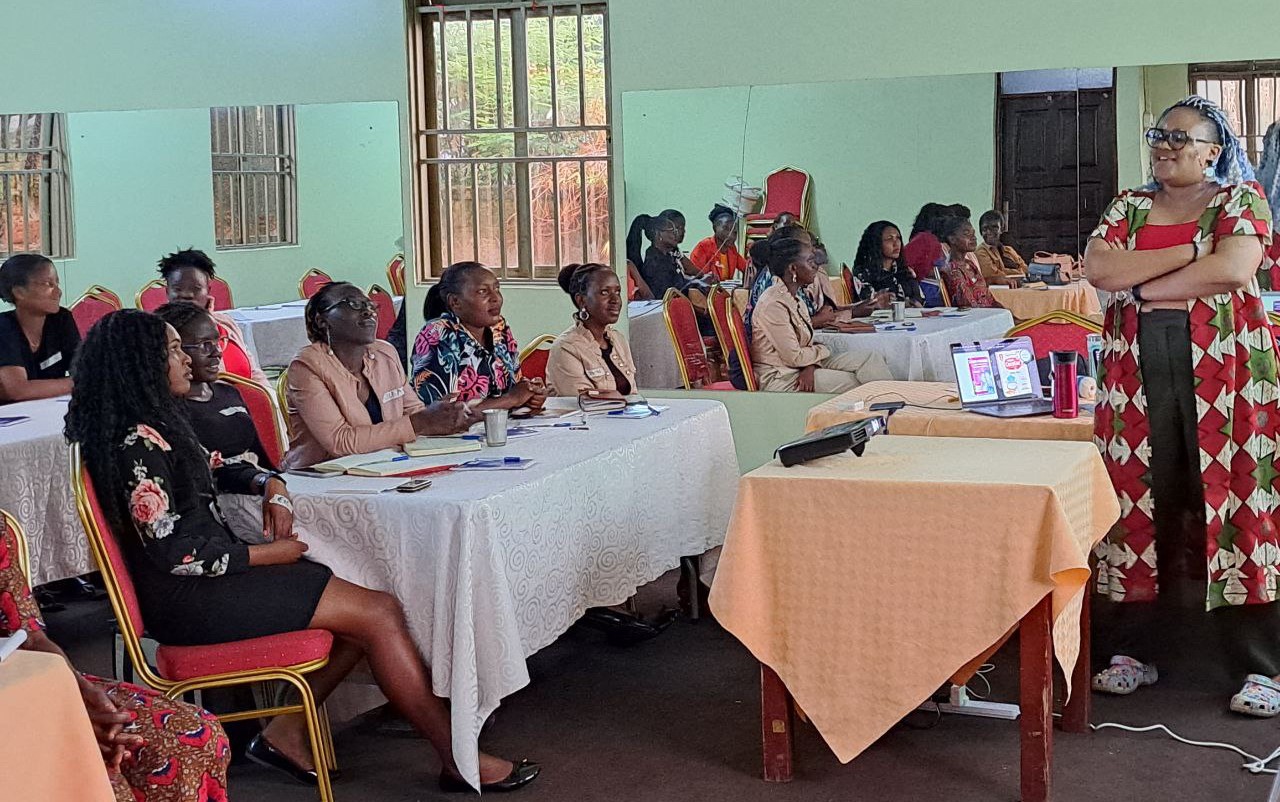
Entrepreneurship Training Inspires Nascent Businesswomen
In August and September 2023, Taremeredzwa “Tare” Chirewa, 2021 Alumna from Zimbabwe, and Amos Kiyingi, 2021 Alumnus from Uganda, collaborated on a project designed to empower women entrepreneurs in Wakiso and Kampala, Uganda.
Over the five-day workshops, 30 women participated in business sessions focused on their personal development, leadership, and marketing strategies. Most came to the sessions with vocational skills but no formal training. The workshops were designed to help participants take a complete view of their businesses, set realistic business goals, formulate actionable plans, and integrate tools for ongoing support after the official program.
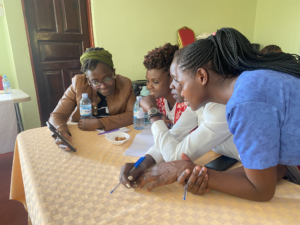
“The day we spent on finances allowed our participants to see holistically their profit margins and where they needed to adjust, as there were a few that were spending more than they were making,” Tare and Amos said. “One of the participants in the detergent business was spending more on her soap-making materials than she was making per bar, thus running at a loss without realizing it.”
Beyond the training, participants were also introduced to a business support group, which offers low-interest loans and startup grants, providing a tangible pathway to entrepreneurship in Uganda. The project also fostered a community of peer collaboration, with participants continuing to support each other through a dedicated WhatsApp group that has continued long after the workshop.
The training culminated in a compelling demonstration of growth and empowerment, showcasing significant growth between the beginning and end of the training. Participants displayed enhanced leadership skills, a deeper understanding of their businesses, and a renewed vision for the next year of their entrepreneurial journeys. Tare and Amos also helped them connect with Academy of Women Entrepreneurs (AWE) alumnae in Uganda, further enhancing their mentorship opportunities and support.
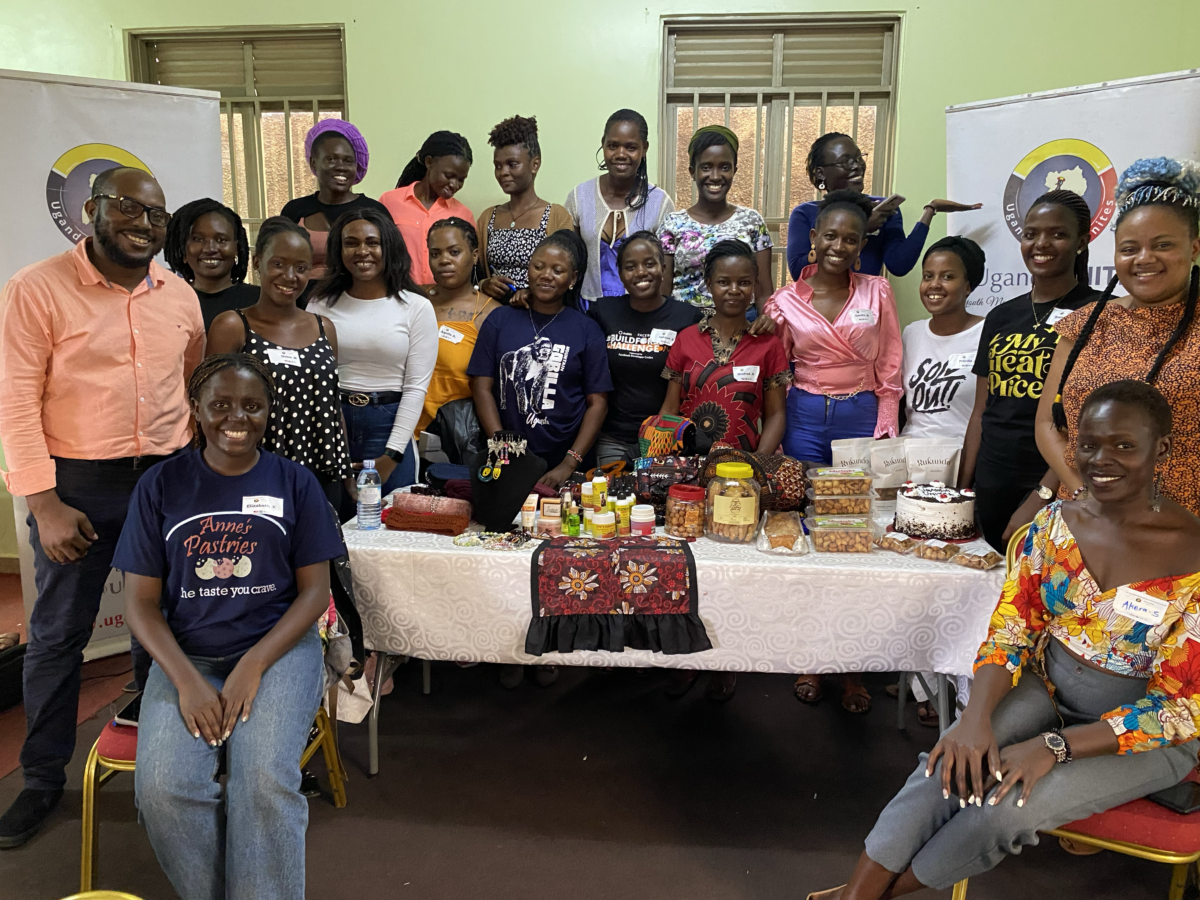
Investing in Women Entrepreneurs
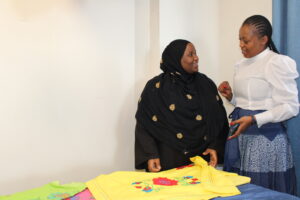
While investing in individual businesses is one element of economic growth, so is advancing the broader entrepreneurial ecosystem. That’s what Neema Kihwelo, 2019 Alumna from Tanzania, and Katlego Mokgethi, a 2022 Alumna from Botswana, aimed to do in their LINC Grant-funded workshop in July 2023.
The project’s centerpiece was a series of entrepreneurship training, coaching, and mentorship sessions designed to help social entrepreneurs in Zanzibar start and grow their enterprises through essential skill development and fostering a resilient entrepreneurship ecosystem. During the program, participants also visited Barefoot College Zanzibar and Practical Permaculture Institute of Zanzibar, which set the stage for potential future collaborations. A stakeholder engagement and panel discussion event, in partnership with the Zanzibar Startup Association, further strengthened the collaboration among women social entrepreneurs and ecosystem stakeholders.
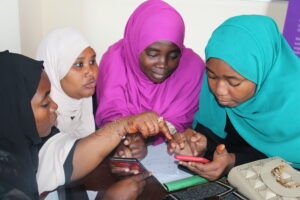
As a result of the project, many female entrepreneurs received training that is often not accessible to them in a conservative society that makes financial independence challenging and results in higher unemployment for young women; of the 90 total participants, 40 were women. The project culminated in a celebration of growth and potential, with participants sharing their refined business pitches and newfound confidence. As Neema poignantly remarked, “The best part for me was seeing this unfold and young women entrepreneurs getting new opportunities to build and grow their businesses.”
Notably, during the project, Neema and Katlego collaborated with the Zanzibar Women’s Chamber of Commerce and Zanzibar Startup Association, empowering about 20 women entrepreneurs with essential information and resources to grow their social enterprises. Additionally, 10 women were provided booths to showcase their products at the Nane Nane Farmers Festival and Expos, organized by Feed the Future in Zanzibar.
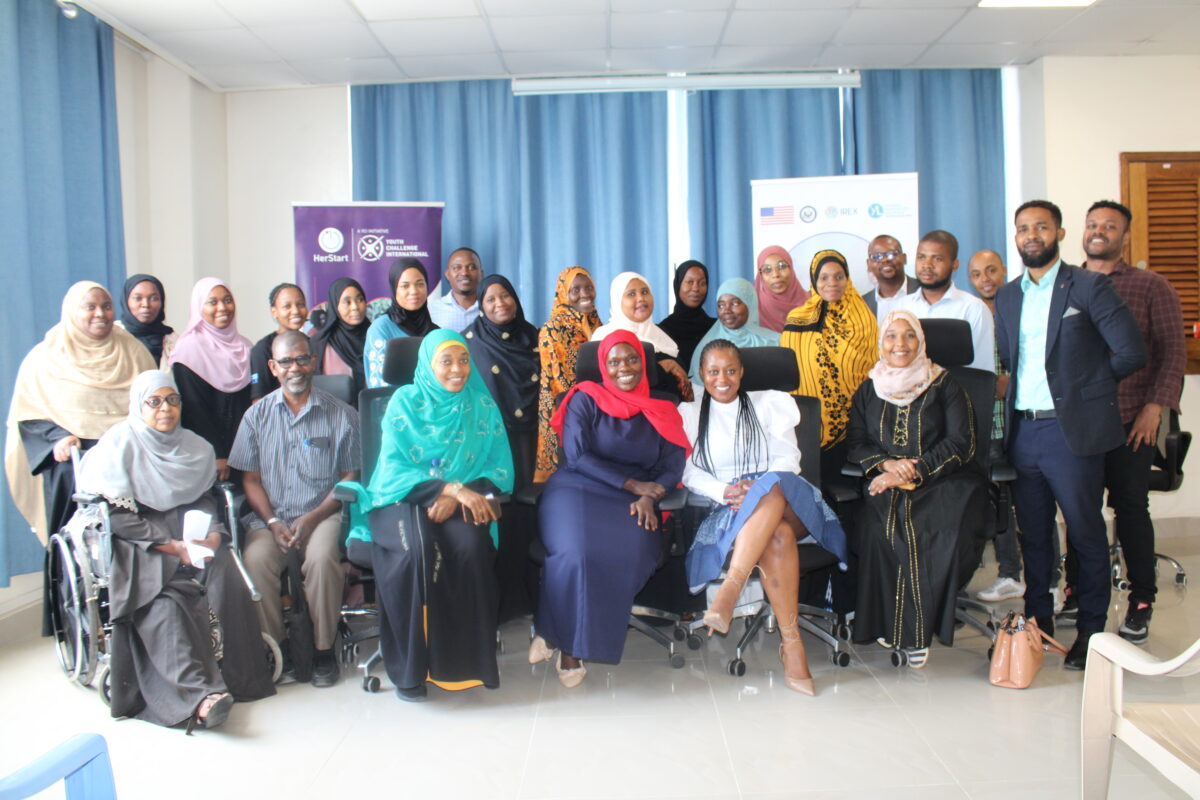
Since the workshop, Neema and Katlego’s continued collaboration with participants has made it clear to them that there has been a shift in mindset among the participants. This shift has encouraged them to adopt innovative approaches to their businesses, engage with the ecosystem in new ways, participate in business case competitions, and develop their brands. Neema and Katlego hope that this change helps continue to foster a more dynamic business environment in Zanzibar.
Helping Entrepreneurs Create Change in the Business Ecosystem
By training female entrepreneurs, these four Fellowship Alumni are showcasing the transformative power of mentorship and strategic guidance in nurturing the next generation of female business leaders in Africa. Through the Fellowship and Alumni Activities, Alumni have the power to change their countries – just one can create a spark that ignites the economy in their community and beyond.
Written by Karagania Mwamlole, Courtney Bennett, and Meredith Lopez
Next Story
Gerald Katabazi
2017 Fellowship Alumnus, Uganda